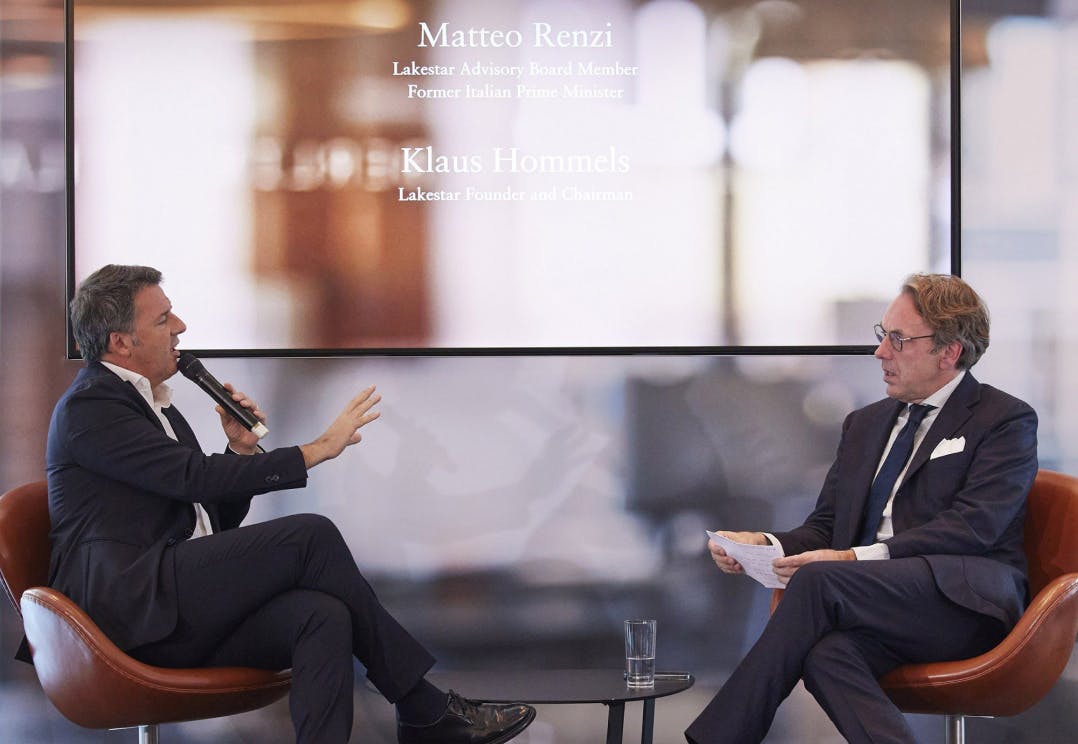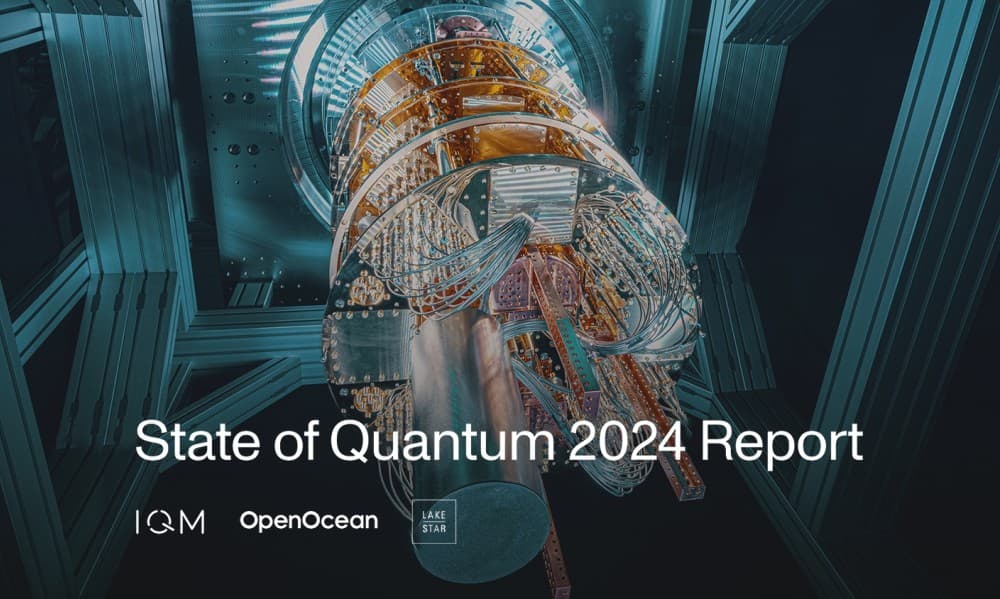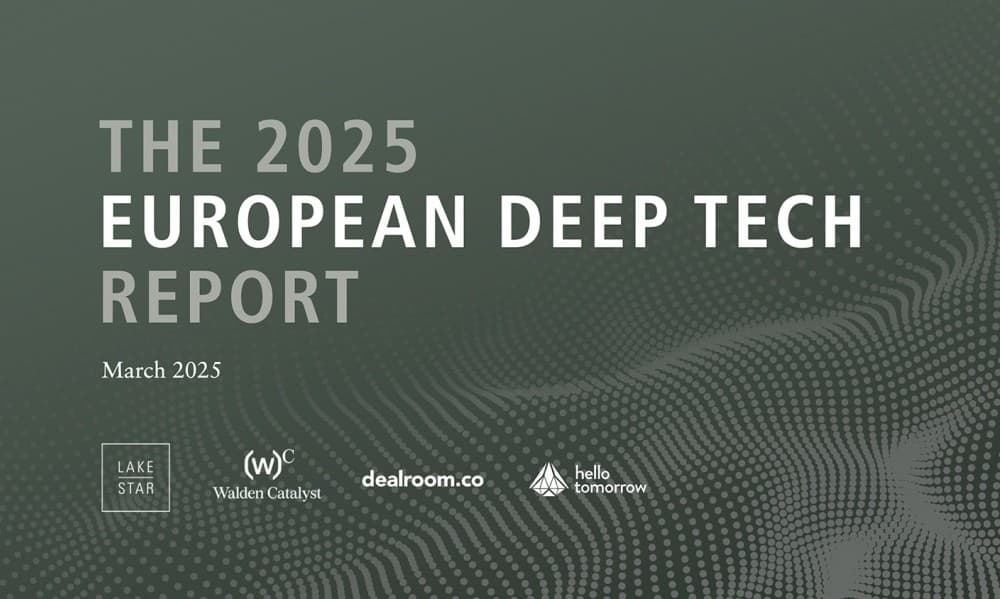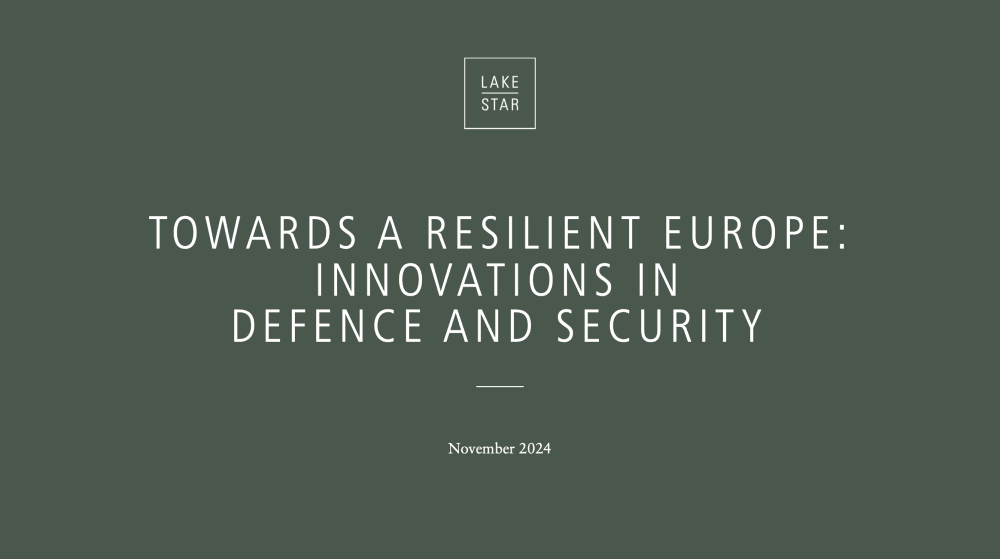Insights|
The importance of Europe in the captable of today’s and tomorrow’s companies
For Europe to remain powerful amid the changing geopolitical landscape, maintaining hegemony in financing technological advances is required. Creating a vision is not enough. To power growth, we need both passion from politicians alongside practical means to plug a funding gap for the new generation of companies. Klaus Hommels, Lakestar’s founding partner, and Matteo Renzi, Italy’s former prime minister, discuss the outlook for Europe and how politics can help it achieve sovereignty in financing and technology.
Matteo Renzi, Former Italian Prime MinsterKlaus Hommels, Lakestar founder and chairman
Klaus Hommels builds his vision for Europe’s future on the patterns of the past, particularly in Germany. ‘Eighty per cent of Germany’s current GDP is due to Mittelstand companies,’ he says, referring to the medium-sized enterprises that made Germany rich. ‘But none of the companies that will be Mittelstand in 15–20 years’ time can be financed by German banks today. From 1950–1970, 4 per cent of yearly GDP was spent on financing these companies, or around EUR25 billion, but that translates in today’s buying power to EUR100 billion a year.’ German growth financing by banks relative to GDP had been declining anyway since the 1950s, from 4 per cent to around 1 per cent which means, says Hommels, ‘the entire burden of building wealth lies entirely on venture’.
Building the future will require EUR6 trillion–EUR8 trillion value creation from new growth companies in the next 20 years. What is required therefore is ‘a step change in the financing of our ecosystem’ to regain the 4 per cent a year investment. Step forward venture financing and there is no more powerful example of the impact it can have than in the US. ‘Venture has transformed the entire US industry,’ says Hommels. ‘Now around 70 per cent of the capitalisation of the biggest companies has its origin in tech companies.’
This is partly due to a new level of aggression in US investment in technology companies. ‘In the US, per capita USD5,000 is invested in ventures; in Germany it is USD600. We make USD2,000 out of that USD600 in Germany, while the US makes USD26,600 out of its investments,’ he says.
‘There’s barely any downside in investing in this asset class so they do it at scale,’ adds Hommels. He points out that banks such as Goldman Sachs invest in companies like General Catalyst and Thrive Technologies in order to fast-track their development. It’s no wonder then that US banks can now yield enormous clout. ‘In around 2009, the market capitalisations of JPMorgan and Deutsche were about the same level. Now Deutsche is around USD25 billion while JPMorgan is USD500 billion,’ says Hommels.
Venture companies will keep on innovating and that will change the world for us

Another result of this ramp-up of investment is that venture capital firms become ‘productised’ with a variety of products offering solutions – such as SPACs or secondary funds – to companies across their different stages, whether early stage or growth. This is where the US is leapfrogging over Europe, he warns.
‘Venture companies will keep on innovating and that will change the world for us,’ he adds. This is the industry that needs to solve the problem of finance innovation.’
But can Europe fulfil this? Matteo Renzi, Italy’s former prime minister, is optimistic, saying that Germany will play a key part in Europe fulfilling its potential. Unsurprisingly, he views the future of Europe through a political lens. ‘Germany is the pillar of Europe,’ he says. ‘Of course, after 16 years of Angela Merkel, a change of chancellor will have a big impact, and the lack of a chancellor might be a problem for the next two to three months, but Germany is so strong this change will not be a problem for Europe.’
He fears Europe could be left out of any sphere of influence, while the US and China are engaged in increasing competition with each other. ‘China will continue to grow, in terms of geopolitics, as well as economy,’ he says. In particular, ‘after the tragedy of Afghanistan, I consider the defeat of the US and the victory of China and Russia a potential problem for Europe.’
Hommels sheds some optimism on this scenario, however. ‘It is said that diamonds are made under pressure and I think we can assume that there is currently pressure from the situation between China and the US. But to transform Europe into a diamond, we need three things. First, I want to see politicians who have passion: we need passionate leaders because we cannot live the way we did before in an aimless state. Second, we need to identify the core technologies to make sure we have technical and digital sovereignty for Europe. And third, we need to team together on these decisive technologies.’
We need passionate politicians who have a vision for future
The issue of passion in politics is close to Renzi’s heart, but he takes it further, saying: ‘We need passionate politicians who have a vision for future.’ He issues an appeal to his fellow politicians across Europe, saying: ‘We need a vision. We need a strategy. I believe the great thing is to believe in European sovereignty, European leadership and a European role.’
While technology and financing have important roles to play in European sovereignty, he says: ‘We are not just numbers. The people of the world of tomorrow will need big emotion, not just big data.’ For that, he wants Europe to tap into its creativity, ‘not only in automation and robotics, but we need creation of cultural values too’. ‘Europe could play a major role in the next years if we have cultural leaders, not just political leaders.’
‘If we are able to build a Europe of venture, of start-ups, of dreamers, Europe could be the protagonist,’ says Renzi. ‘But if we remain a place of red-tape and bureaucracy, we will stagnate.’
‘I am optimistic despite the global tensions because Europe can still create surprise. And Lakestar is a place that creates value and surprise.’
This article is part of the Lakestar Briefing, a periodical publication about Lakestar's portfolio companies and our network of inspiring minds we like to work with.
Click here to subscribe










